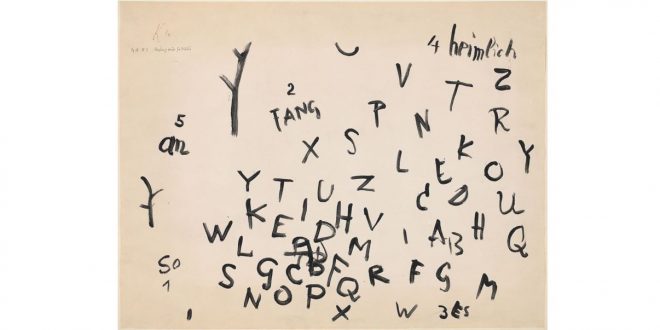The Reading Group Ekphrasis: Text – Image Denkräume is calling for participants for a workshop to be held virtually on Friday, 24 September 2021.
In September 2020, scholars and students at the University of Toronto explored the role of ekphrasis in literature and literary theory. The concept of ekphrasis can be very simple: the textual description of art. The dazzling rupture caused by Homer’s description of Achilles’ shield in the Iliad, Lessing’s intervention in the paragon of arts exemplified by the tragic pathos of Laokoon, the imprint of Heidegger’s footprints in Van Gogh’s peasant shoes: During our eight-month exploration, we were repeatedly astonished by the consistent appearance of ekphrasis as a mode of writing in both artistic and critical endeavours. From its definition as a rhetorical device to its use by art historians as fundamental component of their practice, the history of ekphrasis as an encounter between the textual work and the visual imagery provides an opportunity for inquiries into political, historical, and aesthetic dimensions.
We approach ekphrasis as a challenge to our analytical and systematic nature, provoking in us the awareness of the propensity for reduction and identification in our thinking. We believe that the semiotic equation of media, as made popular in the 1990s, undercuts our reception of the intermedial space opened up by artists and critics throughout centuries. Ekphrasis, similar in many ways to translation, questions the notions of origin and reproduction by highlighting the superimposition of reproducibility and originality through its performative nature. The translation of the visual image into the textual frame reveals power structures between media that are historically and conventionally inscribed into this intermedial relationship. Ekphrasis as critique challenges epistemological categories by estranging the construction of meaning and knowledge through reference to a completely different register of mediation.
The workshop invites contributions that investigate ekphrastic writings as aesthetic sites that engage with the limits and possibilities of medial expression. Besides the major inquiry into text-image relations and the nature of the sister arts topos in historical and cultural constellations, contributions may focus on one or several of the following questions:
- Can we transfer concepts of translation theory onto ekphrasis?
- What narratological insights does ekphrasis reveal, and how do these insights reflect the historical narrative trends (e.g. realism, symbolism…)?
- Does the encounter between text and visual image highlight a materiality of the text?
- Can we assume an allegorical underworking in ekphrastic writing?
- Does ekphrasis work as a textual museum and what insights can we gain from an engagement with ekphrastic text in terms of provenance?
- Can we postulate a complimentary relationship between word and image through ekphrasis in the era of digital interaction?
We invite presentations of 20 minutes. Please send an abstract of max. 1 page by May 30th to ekphrasis.toronto@gmail.com. Decisions will be announced by the end of June.
 Department of Germanic Languages & Literatures University of Toronto
Department of Germanic Languages & Literatures University of Toronto
